Six-Gun
Member
- Joined
- Jul 30, 2013
- Messages
- 427
I wanted to share an interesting observation I made with my fellow newbies. We had some very nice discussion about the difference in aggressiveness of fish that haunt fast moving freestone creeks versus slower spring creeks revolving around a thread I started.
Last week, I made a fishing report in the General Forum about a trip I made to Panguitch Creek in southwestern Utah:
http://www.paflyfish.com/modules/xforum/viewtopic.php?post_id=467979#forumpost467979
Panguitch is a spring creek that is partially fed by overflow from the adjoining lake at certain times of year. The section I fished that day is a low gradient, slow-moving portion that is very fertile, mostly clear and fairly warm. There were boatloads of small baitfish and bugs here. It is a gorgeous stretch of water, but also tough to work for the wild browns in there. I only caught two 10+ inch fish and a few fingerlings that day. I believed that the slow, mostly clear water, was a big factor in why it’s a tough area to fish. However, some of the regulars on here pointed out that the fertility of the water was likely a bigger cause for the tough fishing than the water flow.
So, yesterday I decided to test the theory. A buddy and I worked a very different area of the same creek. This section is a higher gradient, faster flowing portion that looks more like a freestone run than a spring creek. The water sits in a tight valley that sees much less sunlight and is notably less fertile: fewer plants, insects, sculpin and minnows. To say it fished differently than the slower section I hit last week would be an understatement. The fish in this entire section were drastically more aggressive. The water was significantly stained (about 30% clarity) from a flurry of recent thunderstorms and I still saw about 5x the catch in last week’s section. Using a mix of dry flies early in the shallow water and a black wooley bugger in the deeper areas later in the day, the voracity of these browns, in the very same body of water, was noticeably more pronounced.
It seems that there is definitely something to the notion that fertile water results in more challenging fishing while less fertile water results in the inverse.
Here are some pics of the fish I caught in this faster section. Another conversation of note in last week’s fishing reports was the more drab, steely color of the fish I caught in the slow section. Notice the variety of color combinations these fish had:
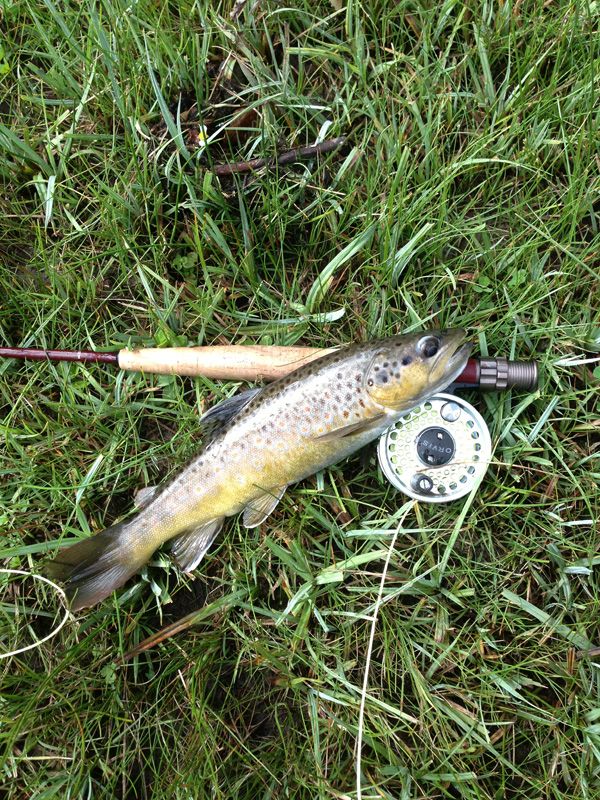
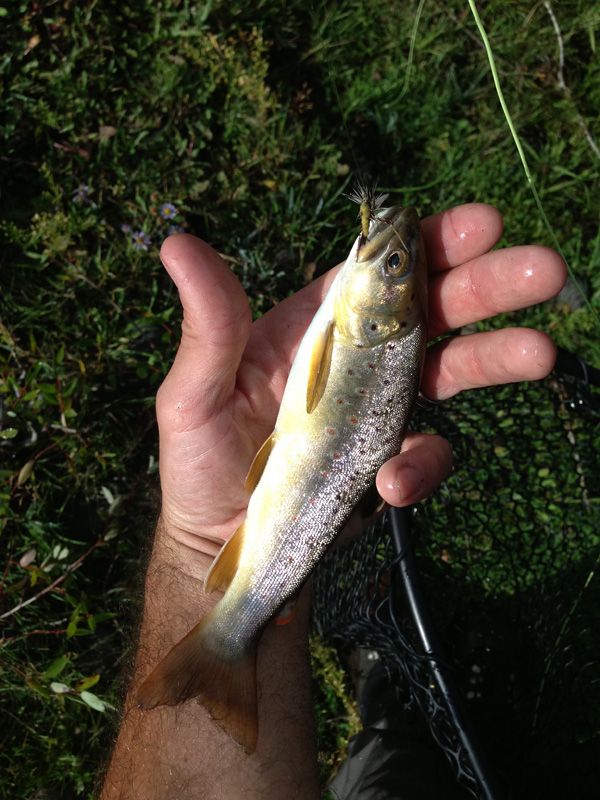
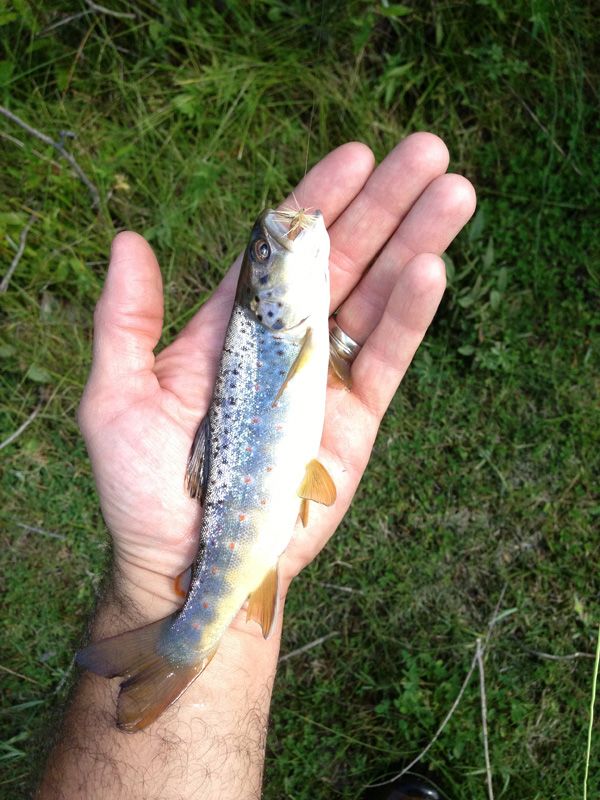
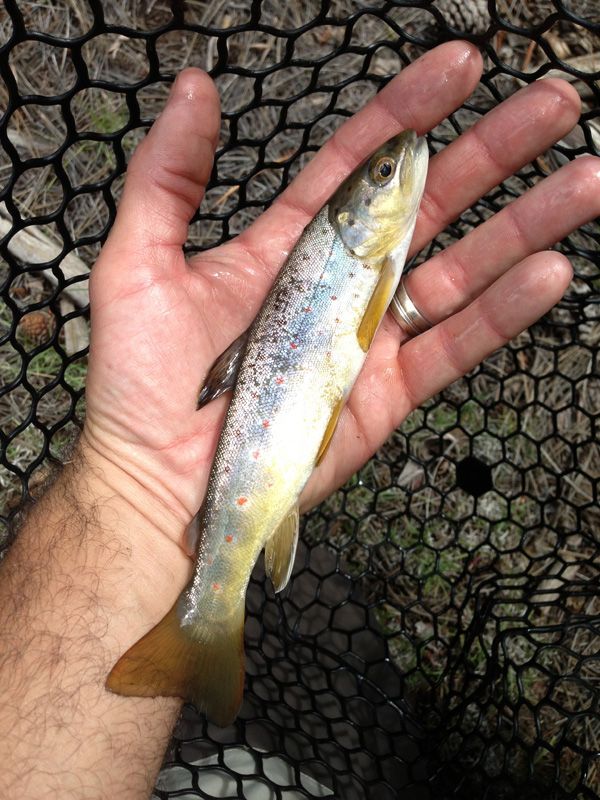
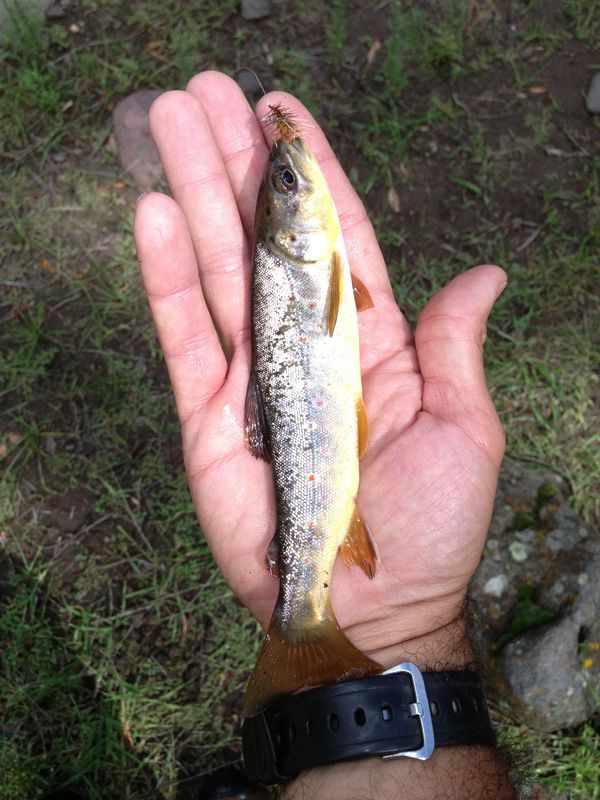
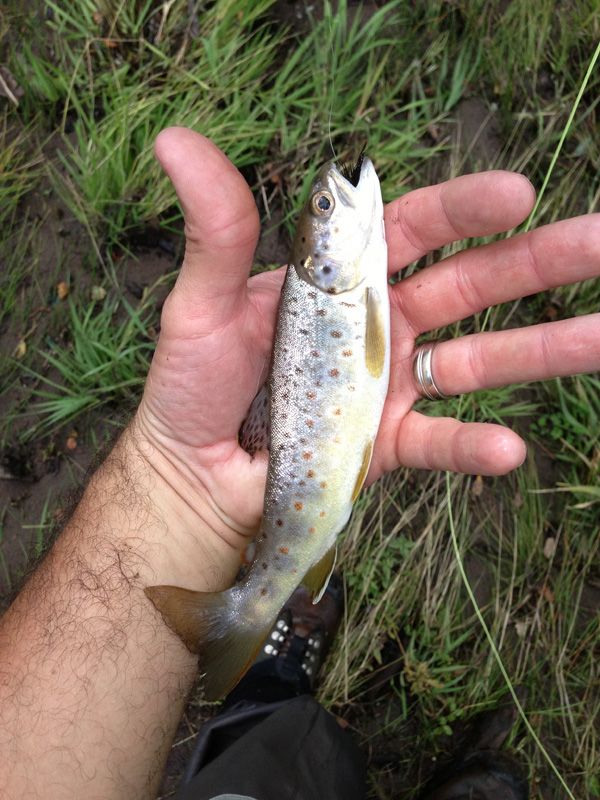
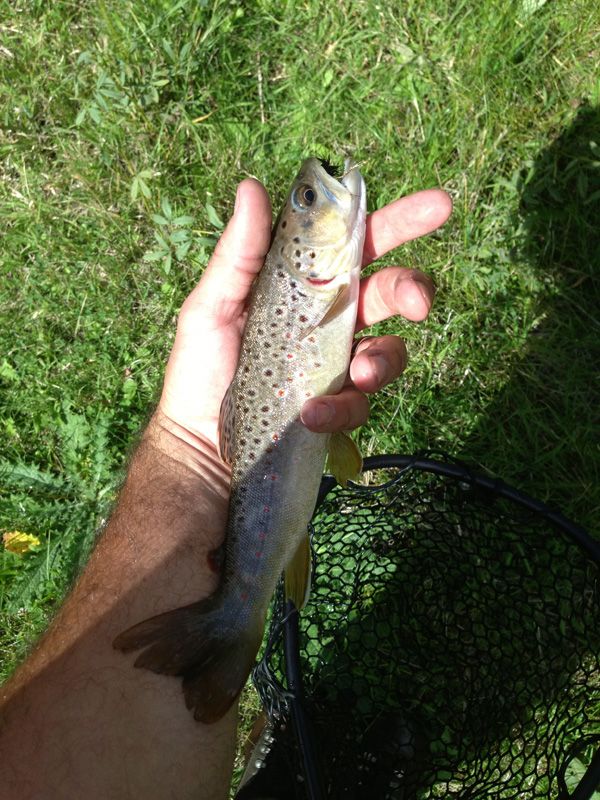
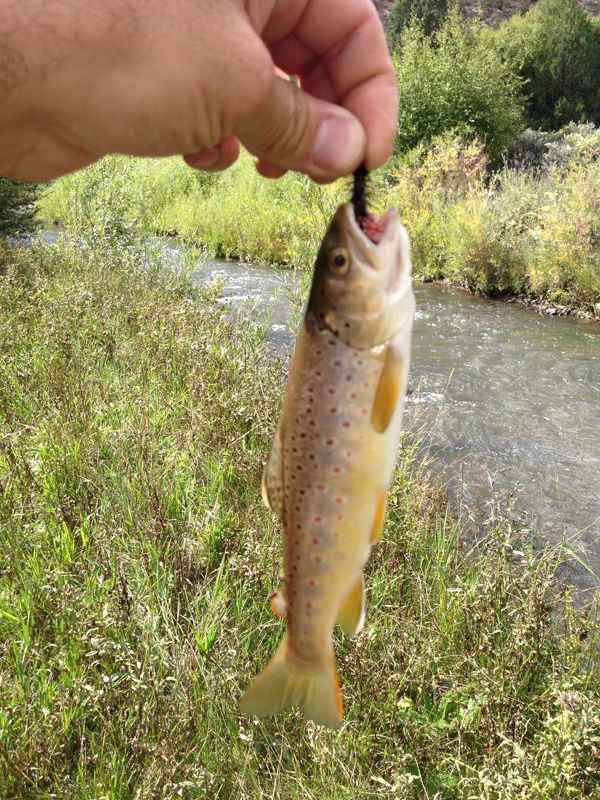
Last week, I made a fishing report in the General Forum about a trip I made to Panguitch Creek in southwestern Utah:
http://www.paflyfish.com/modules/xforum/viewtopic.php?post_id=467979#forumpost467979
Panguitch is a spring creek that is partially fed by overflow from the adjoining lake at certain times of year. The section I fished that day is a low gradient, slow-moving portion that is very fertile, mostly clear and fairly warm. There were boatloads of small baitfish and bugs here. It is a gorgeous stretch of water, but also tough to work for the wild browns in there. I only caught two 10+ inch fish and a few fingerlings that day. I believed that the slow, mostly clear water, was a big factor in why it’s a tough area to fish. However, some of the regulars on here pointed out that the fertility of the water was likely a bigger cause for the tough fishing than the water flow.
So, yesterday I decided to test the theory. A buddy and I worked a very different area of the same creek. This section is a higher gradient, faster flowing portion that looks more like a freestone run than a spring creek. The water sits in a tight valley that sees much less sunlight and is notably less fertile: fewer plants, insects, sculpin and minnows. To say it fished differently than the slower section I hit last week would be an understatement. The fish in this entire section were drastically more aggressive. The water was significantly stained (about 30% clarity) from a flurry of recent thunderstorms and I still saw about 5x the catch in last week’s section. Using a mix of dry flies early in the shallow water and a black wooley bugger in the deeper areas later in the day, the voracity of these browns, in the very same body of water, was noticeably more pronounced.
It seems that there is definitely something to the notion that fertile water results in more challenging fishing while less fertile water results in the inverse.
Here are some pics of the fish I caught in this faster section. Another conversation of note in last week’s fishing reports was the more drab, steely color of the fish I caught in the slow section. Notice the variety of color combinations these fish had:











